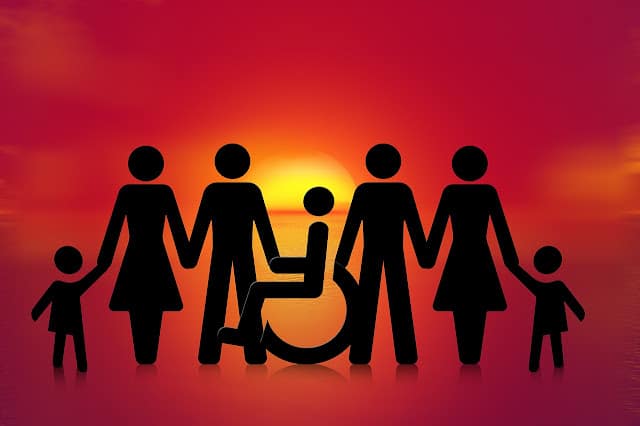The constitution of Nepal has made provision for the inclusion of every group of people. The main provisions provided by the constitution to make the country inclusive are following:

Inclusiveness According to the constitution of Nepal
Preamble
Protecting and promoting social and cultural solidarity, tolerance and harmony, unity in diversity by recognizing the multi-ethnic, multilingual, multi-religious, multicultural, and diverse religious characteristics, resolving to build an egalitarian society founded on the personal inclusive and participatory principles in order to ensure economic equality, prosperity, and Social Justice, by eliminating discrimination based on class, caste, region, language religion and gender and all forms of caste-based on disability.
Part 1 article 3, Nation
All the Nepalese people with multiethnic, multilingual, multi religious, multicultural, characteristics and in geographical diversity and having common aspirations and being United by the bond of elegance to National independence, territorial integrity, National interest and prosperity of Nepal, collectively constituted the nation.
Part 1 Article 6, the language of the nation
- All languages spoken as the mother tongue in Nepal are the languages of the nation.
Part 3 Article 18, Right to Equality
3. The state shall not discriminate citizens on Grounds of origin, religion, race, caste, tribe, sex economic condition, language, region, ideology or on similar other grounds.
4. No discrimination shall be made on the ground of what gender with regard to remuneration and social security for the same work.
Part 3, article 24, Right Against Untouchability and Discrimination
1. No person shall be subjected to any form of untouchability and discrimination in any private and public places on Grounds of his or her origin, caste, tribe, community, profession, occupation or physical condition.
5. Any act of untouchability and discrimination shall be punishable by law as a serve social offence, and the victim of such act shall have the right to obtain compensation in accordance with law.
Part 3 article 42, Right to Social Justice
1. The socially backward women, Dalit, indigenous people, indigenous nationalities, Madhesi, Tharu minorities, persons with disabilities marginalized commodities, Muslims, backward classes, gender and sexual minorities, youths, farmers, labourers, oppressed or citizens of backward regions and indigent Khas Arya shall have the right to participate in the State bodies on the basis of inclusive principle.
Part 8, Article 84, Composition of the house of representatives
2. The federal laws and provide that, in fielding candidacy by political parties for the election to the house of representatives under the proportional electoral system, representation shall be insured on the basis of or closed list also for women, Dalit, Indigenous people, Khas Ayra, Madhesi, Tharu, Muslims and backward regions, on the basis of population. In so fielding candidacy, regard shall also be had to geography and territorial balance.